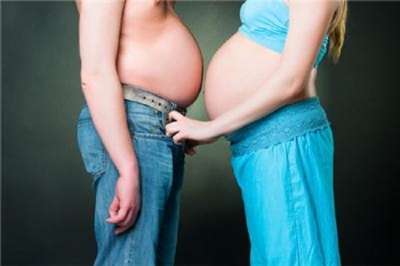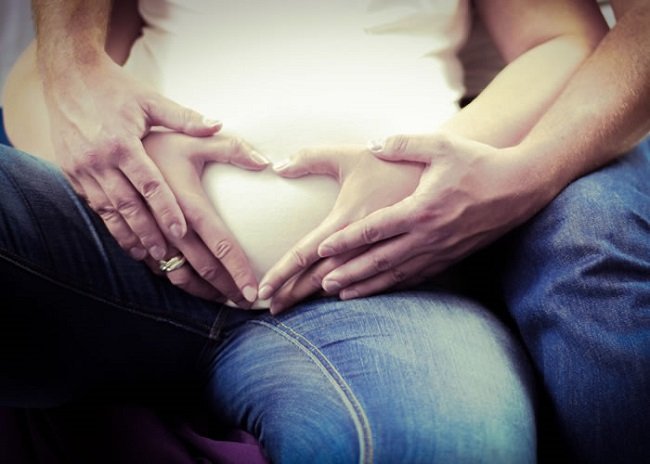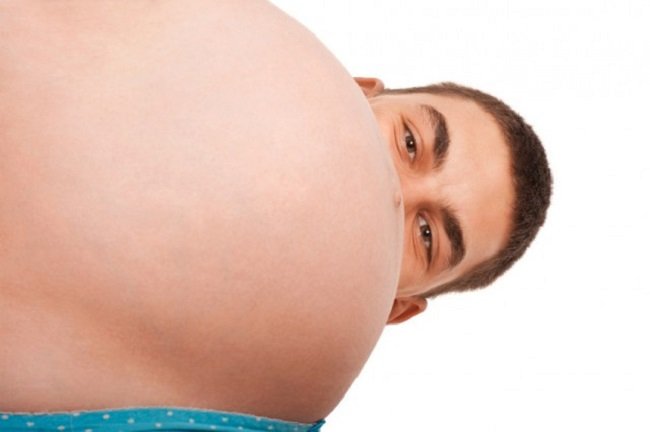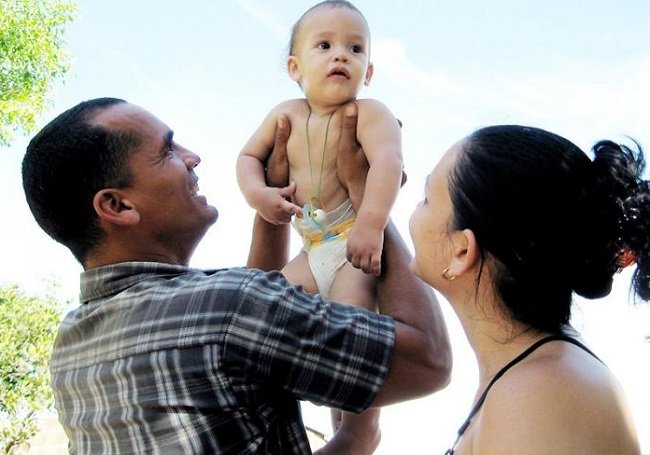 Dad’s Pregnant, Too
Dad’s Pregnant, Too
By Vladia Rubio/CubaSí
Sunday, June 16 2019 05:49
Translated and edited by Walter Lippmann for CubaNews

Carrying a new being in the womb not only causes decisive changes in the organism of the future mother. Even the first-time father is sometimes confronted with novelties in his body.
Photos: Yaciel Peña
Deyanira is in her third month of pregnancy and the fatigue and vomiting do not leave her alone. Neither does Osniel.
It’s not a mistake. She didn’t skip a line while reading. Osniel, the husband of the first-time mother, feels afflicted with symptoms similar to hers, but when his stomach turns as if he were on the roller coaster, he tries to hide the situation although sometimes the paleness betrays him.
And it is not that this young and future father is a hypochondriac. No mental illness afflicts him. He is simply going through what others are going through, even if they keep quiet about what they will say and even how they will look at them.
However, scientific research has shown that some parents, especially first-timers, are afflicted with the so-called Couvade Syndrome or empathic pregnancy.
As a result, it has been proven that they suffer interesting biological changes that bring them sensations similar to those of their partner.
They experience an elevation of estradiol levels (estrogen involved in the maternal behavior of mammals associated with tenderness and similar emotions) and a decrease in testosterone levels.
The hormonal variations that are presented to them at the same time that to their companion can generate symptoms similar to those of her as the well-known nausea and vomiting.
At the same time, knowing the good news that they will be parents, the glucocorticoids decrease, a hormone associated with cortisol, which is released as a result of stress.
In parallel with the above, they secrete more prolactin (the hormone related to the ability to breastfeed) and this results in lack of appetite, fatigue, intolerance to certain odors, drowsiness and weight gain.
After the birth of the child, it has also been observed that in certain first-time parents the levels of oxytocin rise as happens in the mother, and this leads to a closer bond with the newborn.

Among the first scientists to investigate the subject, biologist Katherine Wynne-Edwards, from Queen’s University in Kingston, Ontario, notes that along with psychologist Anne Storey, she verified the role of prolactin in the sensations and feelings of the “pregnant father”.
Another study carried out by Dr. Arthur Brennan of Kingston University in London confirmed the decisive role of prolactin, to the point that levels of this hormone increased when parents carried their babies.
It seems to be, according to some experts, that being close to the pregnant wife can influence those unique sensations experienced by some parents. It happens that the saliva and sweat of pregnant women emit chemical signals that impact hormonal changes in their partners.
Husbands who are physically farther away from the bellies do not receive the above-mentioned influences or perceive them in a very slight way.
Parental brains
They assure that the paternity also influences in the brain to the point of increasing the gray matter as a consequence of the many new conduct that they incorporate following the birth of the baby.
All these new ways of doing things are reflected in changes in the brain. This is what Dr. Juan Blanco López states in his thesis to obtain the scientific degree “Men. Masculinity as a risk factor. An ethnography of invisibility”, from the Spanish university Pablo de Olavide.
Although, obviously, men do not experience the arrival of the new being with the same changes that happen in the body and mind of the woman -who, moreover, must give birth to her child-; they are besieged by fears, curiosities and doubts about how to assume the role of parents.

They are so overwhelmed by these feelings that some even suffer from so-called postpartum depression.
In the journal of the Spanish Association of Neuropsychiatry, Dr. Emilia García Castro states in her article Psychology and Psychopathology of Parenthood: “The latest studies have shown that there is indeed postpartum depression in men. It is said to affect between 5% and 10% of fathers, presenting symptoms similar to those of mothers, and is more common in those who do not live with their children or are first-time fathers…… ».
Although they are undoubtedly curious, the perhaps most important changes are not those mentioned so far. Those who really deserve applause are those who have occurred in the ways of conceiving paternity.
Although traditionally, the father figure was seen as the one in charge of giving permission, the voice of authority, and also the provider; interesting transitions in that order have been taking place for some time now.
At present, parents, as a trend, show a cultural transition in their role, opening more spaces to demonstrations of affection and tenderness towards their descendants, at the same time that they are also in charge, to a certain extent, of offering welfare care, that is to say, those referring to cleanliness, food and others.
On an international level, and obviously also on this Caribbean island, there is a growing understanding that children are the equal responsibility of mother and father. Both have the same rights and duties with respect to their offspring.
In Cuba, where paternity research began to glean since the middle of the last century, although an archaic hegemonic masculinity continues to prevail, transitions in that order are also evident.

Third Sunday in June, Father’s Day, Las Tunas, Cuba, June 14, 2012. AIN PHOTO/Yaciel PEÑA DE LA PEÑA/Thm
Stereotypes persist, but the National Gender Equality Survey revealed that 40 percent of men and women interviewed stressed the importance of the father during the childhood of their children.
However, the burdens we dragged poked their hairy ear when nearly 60% said they “agreed” or “partly agreed” that babies need to be closer to their mother than to their father. Fifty-one percent said a man can’t give them the same care as a woman.
A lot has been studied, but there is still a lot of research to be done regarding fatherhood, especially considering that they are increasingly behaving according to their condition of being emotionally active, sensitive beings. Therefore, more and more people are convinced that kissing their son, showing him their tenderness, nothing is left to them and it does contribute to their stature as contemporary parents.


You must be logged in to post a comment.